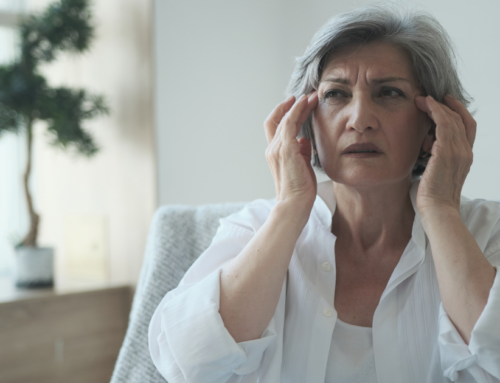Early Cues of Alzheimer’s Can Influence Smell
Early detection of Alzheimer’s disease is crucial for effective management and improved quality of life for patients. A recent study published in the July 26, 2023, online issue of Neurology suggests that individuals carrying a gene variant associated with Alzheimer’s, known as APOE e4, may experience early loss in their ability to detect odors. This loss in odor detection could potentially serve as an early indicator of future memory and cognitive problems.
The study involved over 865 participants who were tested for their sense of smell and cognitive skills at five-year intervals, using an at-home survey. Those carrying the APOE e4 gene variant were found to be 37% less likely to have good odor detection compared to those without the gene. Interestingly, this reduction in smell detection started around ages 65 to 69, providing a potential window for early detection.
While further research is needed to validate and understand the relationship between odor detection and cognitive decline, these findings hold promise in identifying early risks of dementia. This could be particularly beneficial in studies aiming to identify people at risk for Alzheimer’s disease at an early stage.
As a home care agency, this is vital new information to pass along to our caregivers for individuals with Alzheimer’s. Being aware of these research findings can be invaluable in providing better care.
Here are some ways in which home caregivers can help with smell symptom detection while providing care:
- Monitoring Sense of Smell: Caregivers can pay attention to changes in the individual’s sense of smell. If they notice a noticeable decline in the ability to detect odors, it may warrant further evaluation and discussion with a healthcare professional.
- Engaging in Cognitive Activities: Caregivers can engage the individual in cognitive activities that stimulate the brain, such as puzzles, memory games, and storytelling. Regular cognitive stimulation may help slow down cognitive decline and enhance overall brain health.
- Creating a Sensory-Rich Environment: Designing a sensory-rich environment at home can be beneficial. Including familiar and pleasant scents, such as aromatherapy with lavender or citrus, may help evoke positive memories and emotions.
- Encouraging a Healthy Lifestyle: Encouraging a healthy lifestyle is essential in managing Alzheimer’s. Home caregivers can support the individual in maintaining a balanced diet, engaging in regular physical exercise, and getting enough sleep, as these factors contribute to overall brain health.
- Regular Check-ins with Healthcare Professionals: Regular visits to healthcare professionals can help monitor cognitive changes and provide timely interventions if needed. Caregivers should communicate any concerns or observations to the medical team.
- Patience and Emotional Support: Caring for an individual with Alzheimer’s can be challenging, both for the patient and the caregiver. Providing emotional support, patience, and empathy are crucial aspects of caregiving that can positively impact the individual’s well-being.
- Keeping Up with Research: Staying informed about the latest research and developments in Alzheimer’s disease can empower caregivers to make informed decisions and provide the best possible care.
Early detection of Alzheimer’s disease is essential for effective management and improved outcomes for patients. The recent study linking odor detection with cognitive decline in individuals carrying the APOE e4 gene variant offers a potential avenue for early symptom detection. Home caregivers can play a vital role in this process by being vigilant about changes in the individual’s sense of smell and overall cognitive function. Creating a supportive and stimulating environment, encouraging a healthy lifestyle, and providing emotional support are key aspects of home caregiving that can positively impact the lives of those living with Alzheimer’s. By working together with healthcare professionals and staying informed about the latest research, caregivers can help enhance the well-being of their loved ones and make a significant difference in their journey with Alzheimer’s disease. Looking for a caregiver in Oregon, Washington or Idaho? Check out our locations to find a branch near you that can assist with placing the perfect caregiver!
Sources:
Early Odor Detection Loss Linked to Alzheimer’s Gene Variant






